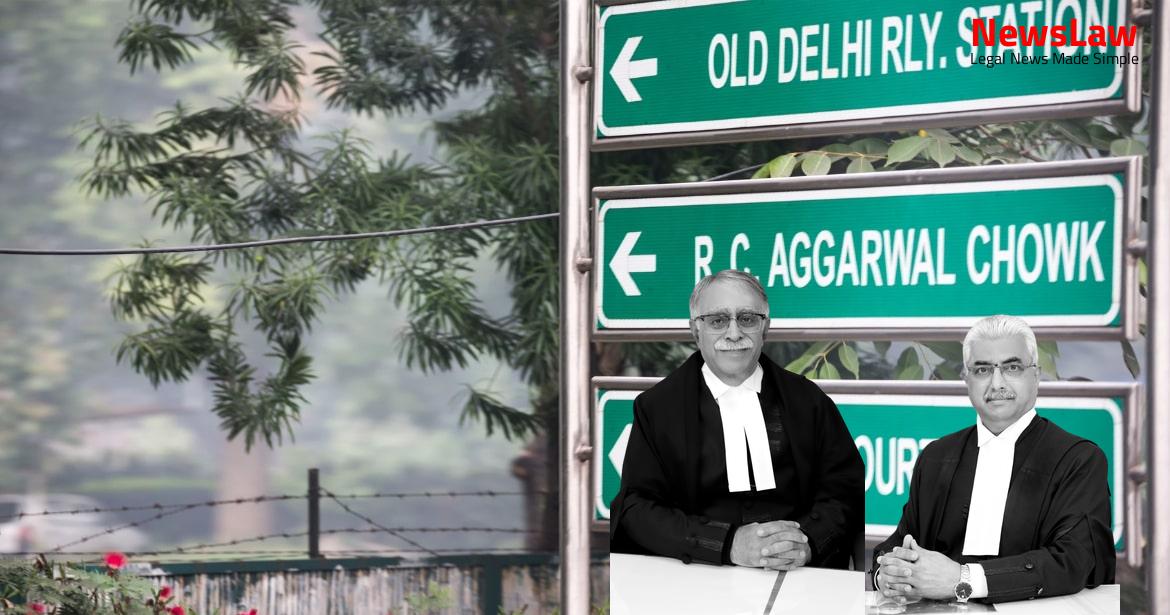In a recent landmark judgment by the Supreme Court of India, the case of the Tarsem Lal versus the Enforcement Directorate has been deliberated upon. The judgment provides valuable insights into the legal procedures concerning anticipatory bail, arrest warrants, and appearances before the Special Court under the Prevention of Money Laundering Act (PMLA). This summary sheds light on the key decisions and implications of the Court’s ruling.
Facts
- Appellants have been denied anticipatory bail.
- Cognizance taken on complaints under Section 44 (1)(b) of the PMLA.
- Protection from arrest provided by interim orders of the Court.
- Accused did not appear before the Special Court after summons.
- Warrants issued for their presence when they failed to appear.
- Appeals filed by unsuccessful accused after rejection of applications by the High Court.
Also Read: Dani Wooltex Corporation v. Sheil Properties – Legal Case Summary
Analysis
- Section 88 of the CrPC is applicable to an accused who appears before the Court after a summons is issued on a complaint under PMLA.
- An order accepting bonds under Section 88 does not amount to a grant of bail; the accused must apply for bail under Section 439 of the CrPC.
- Once cognizance is taken based on a complaint under Section 44(1)(b) of the PMLA, ED cannot exercise power under Section 19 to arrest an accused named in the complaint.
- Special Court can grant exemption from personal appearance to the accused by exercising power under Section 205 of the CrPC.
- When an accused appears before the Special Court pursuant to a summons, he shall not be treated as if he is in custody; hence, not necessary for him to apply for bail.
- The warrants issued by the Special Courts against the appellants shall stand cancelled, subject to specific conditions.
- The Special Court has the power to issue warrants for securing the accused’s presence before the Court, and cancellation of warrants in appropriate cases.
- Personal liberty should be balanced with societal interests before issuing warrants; avoiding unnecessary non-bailable warrants is emphasized.
- ED’s power to arrest an accused after appearance based on summons is limited; they must seek custody through the Special Court for further investigation.
- Guidelines from previous cases may not directly apply to special acts like PMLA; each case should be considered on its own merit.
- Section 88 of the CrPC does not confer any right on any person present in a court but gives discretionary power to the court to ensure appearance.
- The word “may” in Section 88 indicates discretionary power of the court and not a right of the person appearing.
- The term “any person” in Section 88 has a wide meaning and includes not only accused but also witnesses.
- In cases where accused is issued a warrant of arrest and proceedings under Sections 82 and 83 CrPC are initiated, they are not considered free agents to appear at court.
- Discretion given under Section 88 is for the purpose of facilitating appearance and does not confer a right to the person appearing in court.
- The discretion given to the court under Section 88 is not a duty but a discretionary power for the court’s use.
- Section 44(1)(d) of the PMLA mandates a Special Court to conduct trials in accordance with the provisions of the CrPC applicable to a Court of Session.
- Sections 65 and 71 of the PMLA specify the application of the CrPC, with exceptions provided by the Act.
- A Magistrate, if satisfied, may dispense with the personal attendance of the accused and allow representation by a pleader.
- The Special Court can order the issuance of process based on a complaint under Section 44(1)(b) of the PMLA.
- The Central Government designates Special Courts for PMLA offenses in consultation with the Chief Justice of the High Court.
- Provisions like Section 88 allow for bonds to be taken for appearance and arrest.
- Section 205 of the CrPC enables a Magistrate to dispense with the personal attendance of the accused in a summons-case.
- Cancellation of warrants, including bailable ones, is within the power of the issuing Court.
- The accused who appears in Court under a summons issued on a complaint is not automatically considered to be in deemed custody.
- Section 437 of the CrPC outlines the conditions under which bail may be granted for non-bailable offenses.
- Execution of warrants against appellants will be delayed for one month.
- If appellants fail to appear and file undertakings within one month, warrants can be issued.
- After cancellation of warrants, apprehension of arrest will no longer be valid.
- No need to consider prayer for anticipatory bail in light of the judgment.
Also Read: State of Himachal Pradesh vs. Accused Vijay: Landmark Judgment by High Court of Himachal Pradesh
Decision
- Appellants must appear before the Special Court within one month from today.
- Appellants must file an undertaking with the Special Court to appear regularly and punctually.
- Appellants must provide bonds as per Section 88 of the CrPC within one month from today.
- Warrants against the appellants will be cancelled only if they comply with the above conditions within one month.
Case Title: TARSEM LAL Vs. DIRECTORATE OF ENFORCEMENT JALANDHAR ZONAL OFFICE (2024 INSC 434)
Case Number: Crl.A. No.-002608-002608 – 2024



